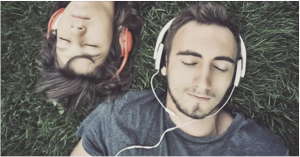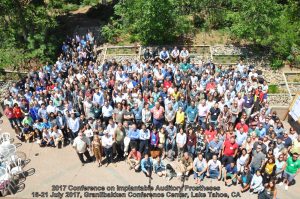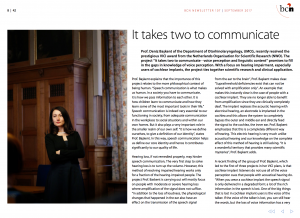Digital Futures: Hearing Futures at V&A, London

The team from 3D Tune-In, an H2020 project where Deniz is acting as an external reviewer, is organizing an interesting event at V&A (18 April). Everyone is invited!
link:
https://www.vam.ac.uk/event/VGaQ68GZ/digital-futures-hearing-futures-2018
Deniz is co-chairing CIAP 2019

Deniz will be co-chairing CIAP 2019 along with Karen Gordon. The initial program is currently put together, will be a very exciting meeting!
See the previous program here:
http://www.ciaphome.org/index.html
Auditory Seminar 6 February 2018: Dr. Jane Opie, Med-El
Age-related Hearing Loss and Cochlear Implants: Trends, Benefits and Challenges
Date: 6 Feb 2018, TUESDAY, 14:00 hr
Location: UMCG, Onderwijscentrum, Lokaal 13
Broadcasting link: https://tinyurl.com/06-02-18-AudSeminar
Dr. Jane Opie
Med-El
Auditory Seminar 26 January 2018: Dr. Paddy Boyle, Advanced Bionics
Advanced Bionics: From front to back
Date: 26 Jan 2018, FRIDAY, 14:00 hr
Location: UMCG, Onderwijscentrum, Lokaal 15
Broadcasting link: https://tinyurl.com/26-01-2017-AudSeminar
Dr. Paddy Boyle
Senior Director
Global Research
Advanced Bionics
Auditory Seminar 19 January 2018: Dr. Carlos Trenado, University Hospital Düsseldorf, Germany
Corticothalamic feedback dynamics for attention and habituation and its application in tinnitus decompensation
Date: 19 Jan 2018, FRIDAY, 14:00 hr
Location: UMCG, Onderwijscentrum, Lokaal 13
Broadcasting link: https://tinyurl.com/19-01-18-AudSeminar
Dr. Carlos Trenado
Institute of Clinical Neuroscience and Medical Psychology, University Hospital Düsseldorf & Dept. of Psychology and Neurosciences, Leibniz Research Centre for Working Environment and Human Factors, Technical University Dortmund, Germany
PhD position available: “Why does voice matter for speech perception?”
If you are a master student from a relevant field to our research interests (hearing and speech sciences, psychology, psycholinguistics, neuroscience, biomedical engineering, physics, or other related fields) and have an interest to work in a fun and exciting research group, read on!
We have a PhD position available, specifically on the topic of voice perception and its importance on speech perception. For further details and to send an application, see the link below:
https://euraxess.ec.europa.eu/jobs/248609
6 October 2017: Dr. David Ryugo, Garvan Institute of Medical Research, Australia
The Auditory Nerve: Structure, Function, and Plasticity
Date: 6 October 2017, FRIDAY, 14:00 hr
Location: 3215.0165
Broadcasting link: https://tinyurl.com/06-10-2017-Auditory-Seminar
Prof. Dr. David Ryugo
Hearing Research
Garvan Institute of Medical Research
Sydney, Australia
All sound in the environment accesses the brain by way of the auditory nerve. This nerve is primarily composed of neurons with myelinated axons that innervate inner hair cells of the cochlea. In order to make sense of sound, neural activity must be closely linked in time to acoustic events. The auditory system has mechanisms to accomplish this task that will be discussed in this presentation. Each auditory nerve fiber forms a giant terminal in the brain with many synapses, and these terminals, called endbulbs of Held, have been observed in every land vertebrate examined to date. I will explore their specializations in hearing, their pathologic reactions to deafness, and their salvation by cochlear implants.
VICI grant featured in BCN newsletter!
 A very nice interview by Elouise Koops covers our new VICI grant in the BCN newsletter.
A very nice interview by Elouise Koops covers our new VICI grant in the BCN newsletter.
To read more please visit the BCN newsletter website.
Terrin Tamati’s VENI grant
Terrin Tamati received a VENI Award from NWO. Below is a short summary of this new project. Congratulations!
More than words: Uncovering the effects of talkers’ voices on real-life speech perception by cochlear implant users
Dr. T.N. (Terrin) Tamati (f), UMCG – Department of Otorhinolaryngology
Understanding speech in the real world, outside the clinic, can be challenging. This project investigates cochlear implant users’ perception of speech produced by talkers with different voices and accents. Findings will identify difficulties cochlear implant users encounter in their daily lives, to account for them in clinical settings.